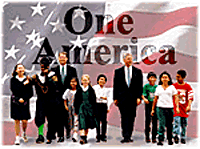 |
 |
The Central and South Florida Higher Education Diversity Coalition is a coalition of 11 colleges and universities in Florida committed to incorporating diversity programs throughout their campus activities. The group was initiated at Barry University, one of 15 U.S. Roman Catholic colleges and universities that have a minority enrollment that is over 50 percent. After conducting its own diversity program for a year, administrators at Barry University decided to exchange their ideas about campus diversity efforts with other higher educational institutions in the region. In order to conduct these meetings on a regular basis, Barry University received a year-long planning grant from the Ford Foundation. The composition of the Central and South Florida Higher Education Diversity Coalition is in itself diverse. It includes historically black institutions, religious schools, commuter schools, two-year colleges, and traditionally large universities. In addition to Barry University, the coalition members are: St. Thomas University, the University of Miami, Bethune-Cookman College, St. Leo College, Florida International University, Florida Memorial College, Miami-Dade Community College, Nova Southeastern College, Palm Beach Atlantic College and the University of Central Florida.
As part of the grant from the Ford Foundation, Barry University developed new models for on-campus and off-campus diversity programs. During the coalition's monthly meetings, task force members discussed personal perceptions on the meaning of diversity. Initially participants discovered they had divergent ideas on diversity and of the challenges that students face in racially diverse environments. As a result of these dialogues, two new approaches to diversity programming emerged. The on-campus model will be tested at Barry University. The off-campus model will be tested by the coalition.
Outcomes and Significant Accomplishments Unlike tangible outcomes in other programs, the outcome in this effort is that the approach to reaching diversity has changed. At the conclusion of the year-long dialogue, the members of the coalition determined that an approach called "service learning," which integrates community activity and academic study, is an extremely promising vehicle for teaching students about race relations. Second, diversity-awareness training coupled with service learning would increase the students' understanding on how race and culture affects the subjects they are studying. For example, students in English classes will have the opportunity to combine their academic study with community service at local literacy programs or English as a Second Language (ESL) programs. Although the coalition members will not attempt joint programming, each institution will conduct the same programs simultaneously in communities bordering their campuses. The coalition also plans to develop performance benchmarks and identify outcomes to be measured, reported and replicated.
|
![]()
To comment on this service,
send feedback to the Web Development Team.
![[White House icon]](/New/images/home_pin.gif)
![[Help Desk icon]](/New/images/help_pin.gif)